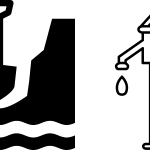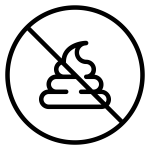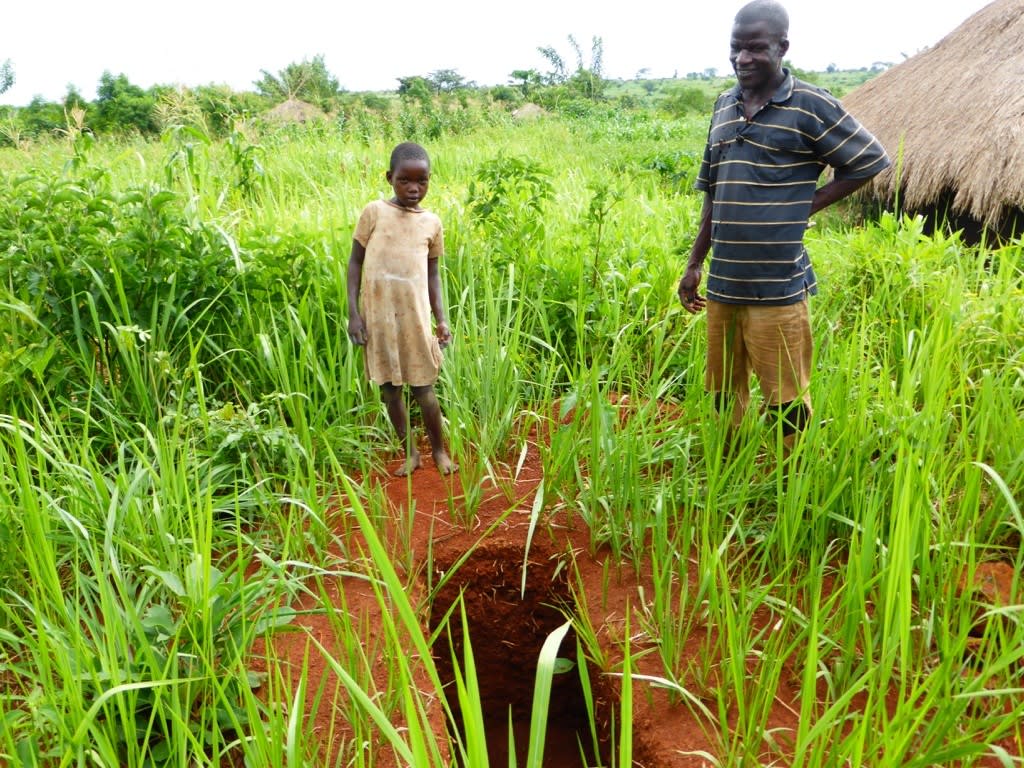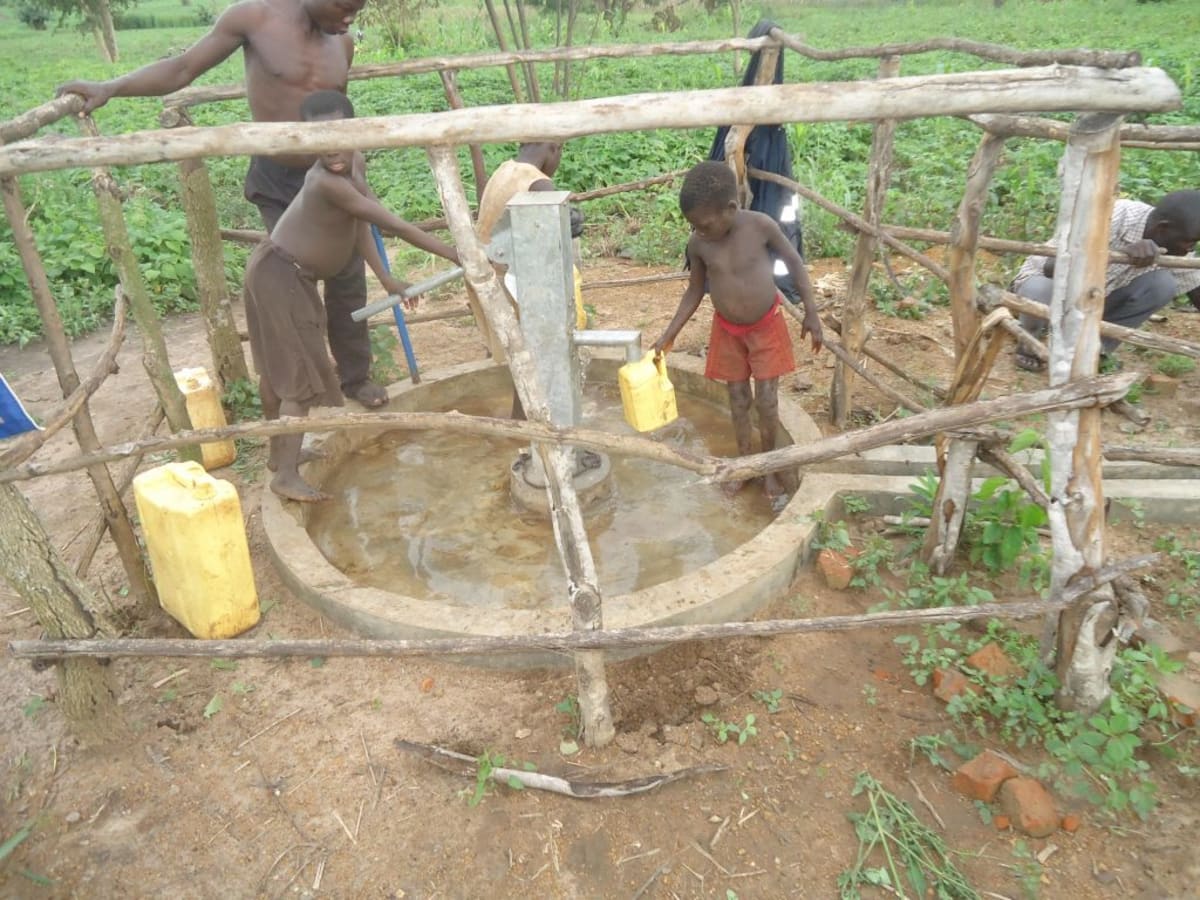This hand-dug well will be installed in Teyago Bada Ngyero of Kiryandongo, Uganda. At this stage of the project, GPS coordinates are a rough estimate.
Teyago is home to around 50 households who form a community of almost 250 people, all who rely on dirty surface water for their daily needs.
Most adults in this village are farmers. Men spend the morning hours on the farm before the sun reaches its peak. To beat the sun, men will retire indoors for the rest of the day. Many will go to the trading center to play games like cards or watch movies. When its not especially hot, the younger men might play football. Women spend the morning on the farm with their husbands, but also take responsibility for the brunt of household chores. They are those in charge of fetching water, cleaning, cooking, and taking care of young children.
Community members are very social and attend as many events as possible, whether it be a wedding, church service, or funeral.
Water Situation
Water is fetched from a hole in the ground next to the village. Water must be collected carefully, since the sides of the hole are steep. There are a few rocks from which the water flows, and women and children normally balance on these to fill their containers. This isn't the danger of this water source, though. One can know the water is contaminated just by its cloudy brown color. Animals drink from the same source, and even more contaminants are washed into the water when it rains. (We apologize that the two pictures of the water hole are so small and blurry; a team member only had a cellphone that day!)
Community members use this water for cleaning, cooking, and drinking. There isn't a year that a family is plagued with medical expenses to treat waterborne disease. Diarrhea is a daily reality, especially among children.
Sanitation Situation
Many families have pit latrines, but there’s still a handful that do not. Most of the latrines we saw were made of bricks and mud, but many did not have roofs. As we begin to construct the hand-dug well, we will continue to encourage and help each family have their own latrine. Without good facilities, locals are forced to seek the privacy of bushes. But overall, most community members have a positive view of latrines. They are from many different ethnic backgrounds, and have shared their experiences and insights with each other to tackle sanitation in Teyago.
Plans: Hygiene and Sanitation Training
Training’s main objectives are the use of latrines and observing proper hygiene practices, since these goals are inherently connected to the provision of clean water. Open defecation, water storage in unclean containers and the absence of hand-washing are all possible contaminants of a household water supply. Each participating village must achieve Open Defecation Free status (defined by one latrine per household), prior to the pump installation for a shallow hand-dug well. As you can see below, a family has already dug a pit for a new latrine.
This social program includes the assignment of one Community Development Officer (CDO) to each village. The CDO encourages each household to build an ideal homestead that includes: a latrine, hand-washing facility, a separate structure for animals, rubbish pit and drying rack for dishes.
We also implement the Community Led Total Sanitation (CLTS) approach with each of our village partners. This aims to improve the sanitation and hygiene practices and behaviors of a village. During these sessions, village leaders naturally emerge and push the community to realize that current practices of individual households – particularly the practice of open defecation– are not only unhealthy, but affect the entire village. CLTS facilitates a process in which community members realize the negative consequences of their current water, sanitation and hygiene behaviors and are inspired to take action. Group interactions are frequent motivators for individual households to: build latrines, use the latrines and demand that other households do the same.
Plans: Hand-Dug Well
The community will participate in excavating and constructing the water source. In the meantime, the aim is that all households own an improved latrine. Many households do not use a latrine but use the bush. Due to open defecation, feces are spread all over the village. This leads to waterborne diseases and contamination of groundwater and surface water. Our aim is that the community is able to live a healthy life free of preventable diseases. We endeavor that at the end of our presence in the community, people will have both access to sustainable, clean water and access to sanitation. We have now organized families to form digging groups for latrine construction, and empowered them with tools to use.
Actual well construction will take four to six weeks if there are no challenges. The well will be lined with bricks and sealing clay, and finished with a Consallen pump.



 Rehabilitation Project
Rehabilitation Project























